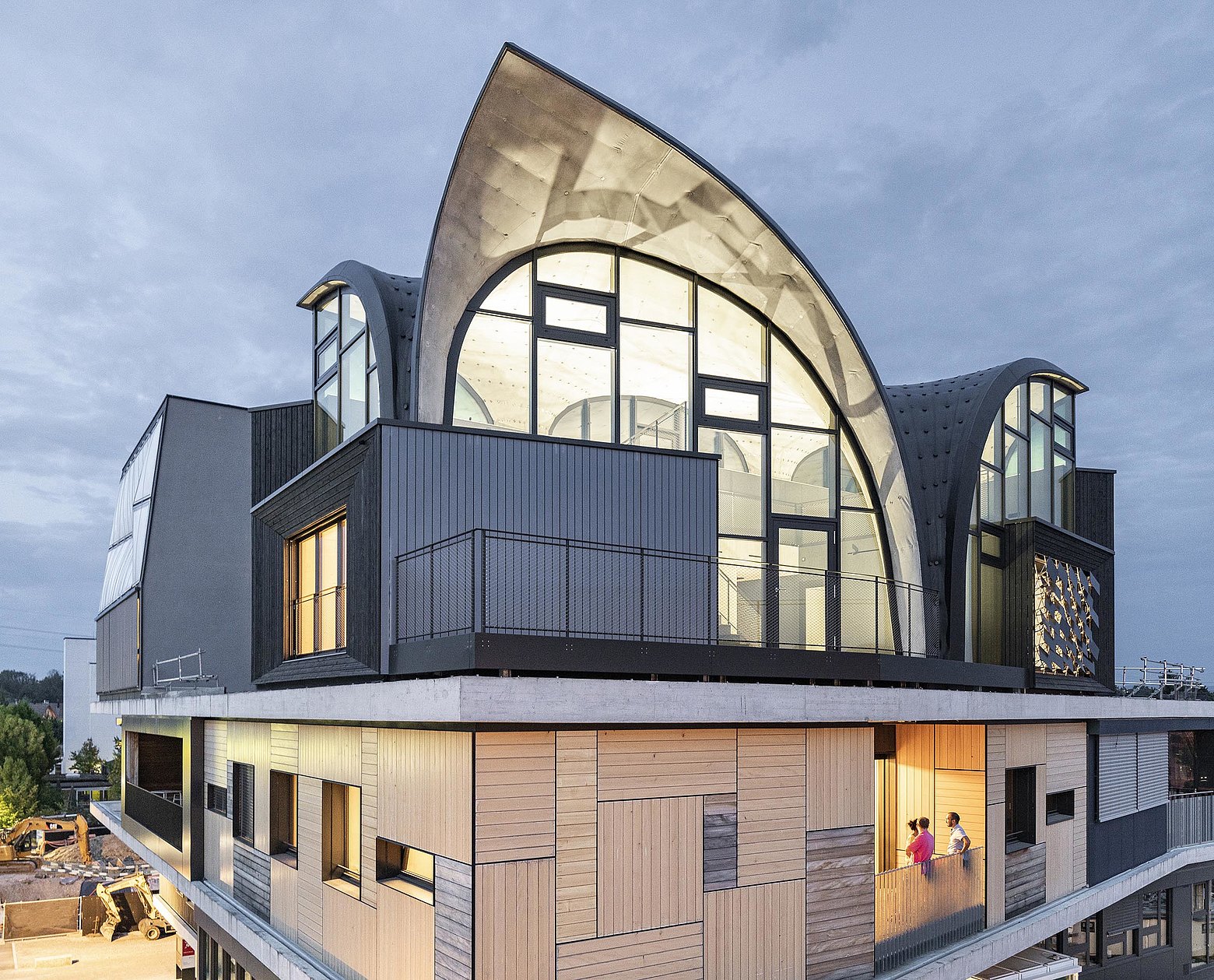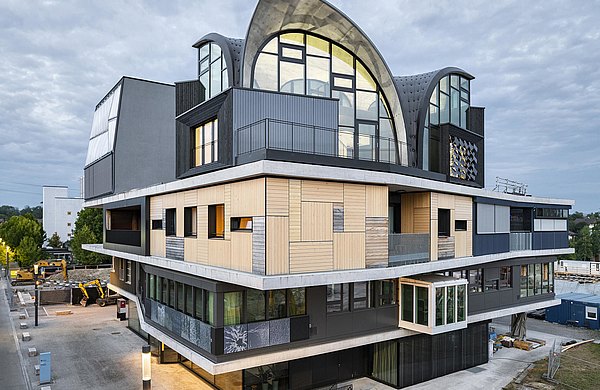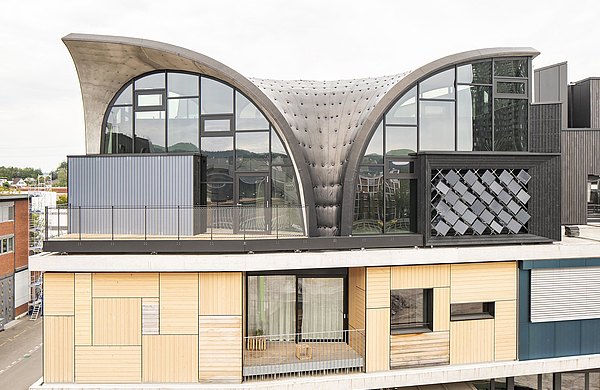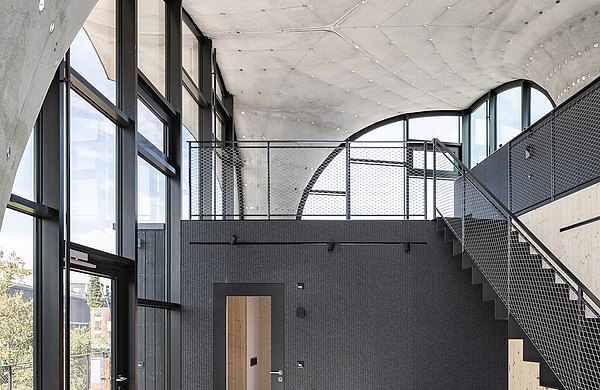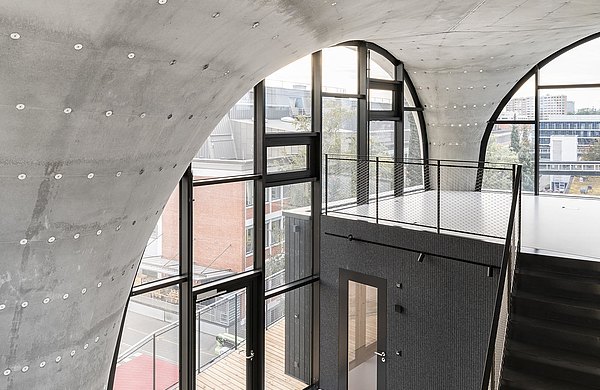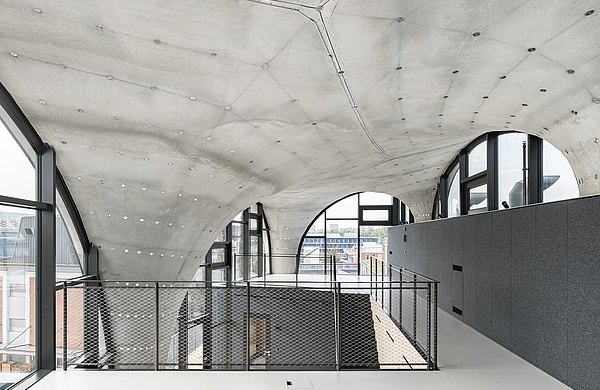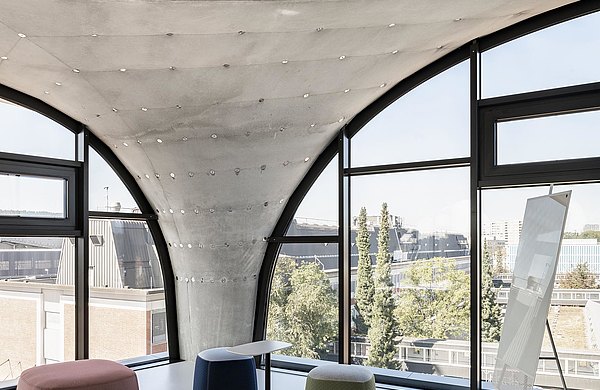HiLo research and innovation unit
Pioneering architecture solutions
Since 2016, the Swiss town of Dübendorf has been synonymous with pioneering building research and sustainable architecture. With the latest HiLo module, the NEST research building is concluding a building experiment here that significantly reduces the use of materials thanks to an innovative method of roof and floor construction, and also conserves resources in the long term thanks to adaptive building technology. The striking arched segments feature thin glass façades and heat-insulating profile systems from Forster, both of which contribute to the sustainability aspect seen throughout the project.
At the NEST research building (Next Evolution in Sustainable Building Technologies), building modules – including the integrated materials, technology and systems – are tested and evaluated under real-life conditions for use in residential and commercial applications. Independent modular units that focus on specific sustainability aspects are divided up across three platforms. NEST invents current solutions for practicable future architecture in the areas of resources and energy and aspects of the circular economy in construction.
One of the latest units to be installed on the upper platform at NEST is the HiLo building experiment. Here, research groups led by Philippe Block and Arno Schlüter from ETH Zurich came together with industrial partners and utilised a series of innovations with the goal of establishing resource-saving construction and long-term, energy-efficient building operation. The most striking innovation is the roof, which is designed as a double-curved, two-layer concrete shell and, due to its flexible formwork and special lightweight construction, can be erected with a far lower material input than in standard concrete construction.
Tailored product adaptation and integration
The arches, which can be seen from a good distance away, merge into self-supporting mullion/transom façades. Building-specific challenges had to be overcome during the planning and construction of the curved glass façades. This is because the material-saving lightweight construction using concrete subsides more over time than usual. As a result, it was necessary to develop a readjustable façade construction. The metalworkers and researchers worked together closely from the outset, which allowed for tailored product adaptation and integration.
Many other developments contribute to the HiLo concept. In addition to an adaptive solar façade and switchable glass, this also includes state-of-the-art heating, ventilation and shading technology. Together, these form an adaptive, intelligent system for energy-efficient long-term operation and a high level of user comfort. The products from Forster, including profile systems for the forster thermfix vario mullion/transom construction as well as forster unico bottom-hung windows and doors, are also part of the sustainability-conscious premise. Due to their high static values, the steel profiles from Forster keep material use to a minimum. The heat-insulating properties up to the Passive House Standard contribute to energy-efficient building operation. In addition, the material used is 100% recyclable, meaning that long-term sustainability aspects are also taken into account right up to the end of the building cycle. Steel is recyclable and can be reintroduced to the material cycle after use.
The HiLo project combines precise quality with low environmental impact, and is a prime example of the future-proofed solutions for today’s and tomorrow’s buildings.
Dübendorf, Switzerland
forster thermfix vario BT60 Hi and BS EI60 on the façade;
bottom-hung windows and doors (forster unico Hi)
Project
HiLo module in the NEST research building, Dübendorf (CH)
Client: Swiss Federal Laboratories for Materials Testing and Research (EMPA)
Innovation developments:
Block Research Group, ETH Zürich
Chair of Architecture and Building Systems, ETH Zurich
Architecture:
ROK Rippmann Oesterle Knauss, Zürich (CH)
Block Research Group, ETH Zürich
Metal fabrication:
Pletscher Metallbau AG, Schleitheim (CH)
Photos: © Roman Keller

